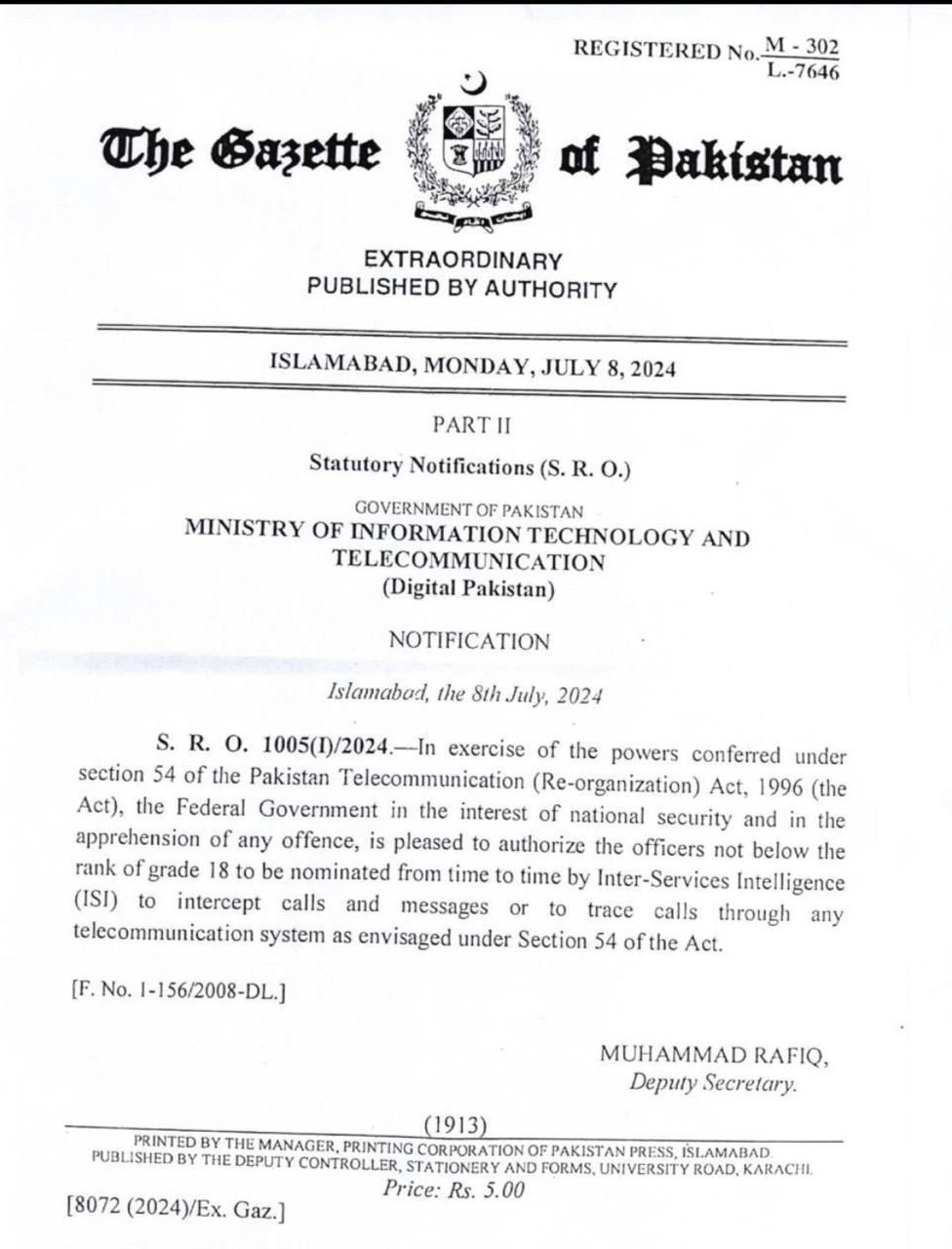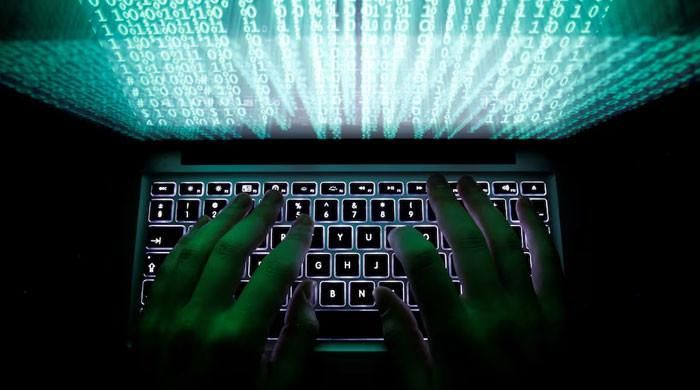- Powers granted by the Pakistan Telecommunication Act, 1996.
- Government highlights concern over crimes against national security.
- The ISI will nominate an officer not below grade 18 for the task.
ISLAMABAD: The federal government has given its nod to the country's premier spy agency, Inter-Services Intelligence (ISI), to intercept and trace calls and messages in the detection of a crime against national security, sources said. Geo news on Tuesday.
The federal cabinet has approved the relevant circular allowing a designated ISI officer to carry out call tracing under Section 54 of the Telecom Reorganisation Act, 1996. However, the officer designated by the agency cannot be below grade 18, the sources added.
The aforementioned section of the Telecommunications Act allows the federal government to authorize any person or persons to intercept calls and messages or trace calls through any telecommunications system in the interest of national security.
It also establishes that the Government will have preference and priority in the telecommunications system over any concessionaire for the defense or security of the country against any foreign aggression.
“The federal government, in the interest of national security and the apprehension of any crime, is pleased to authorize officers […] “Be designated from time to time by the ISI to intercept calls and messages or trace calls through any communication system,” reads the notification issued by the Information Ministry on Monday.

The move comes against moves by the Prime Minister Shehbaz Sharif-led government towards stricter social media regulations, citing national security concerns and the ongoing ban on popular social media platform X.
In May, Prime Minister Shehbaz approved a bill to amend the Prevention of Electronic Crimes Act (PECA) 2016 that suggested the establishment of a Digital Rights Protection Authority.
In addition, the government is also installing a national firewall on different Internet Service Providers (ISPs) to control social media with filters capable of blocking unwanted content and preventing it from reaching a wider audience. News reported on June 7.
The latest firewall will be used to inspect information originating from different Internet Protocol addresses.
“The national firewall will serve two purposes: identifying the places where propaganda material is coming from and the subsequent blocking or reduction of coverage of those accounts,” he added. “But I think the main goal will still be to locate the source of that propaganda to nip the evil in the bud,” said an official familiar with the information.
There will be a keyword filtering system to detect content that the government considers undesirable or harmful to national security, etc. The filter will act as an information inspector. Such posts will likely be camouflaged and subsequently rendered invisible to outside users.
Publications of all dissident voices inside and outside the country are likely to undergo this inspection before they are allowed to become properly visible.
This filter will be responsible for checking social media platforms such as Facebook, YouTube and X (formerly known as Twitter). Preparations are also being made to prevent the “misuse” of virtual private networks (VPNs), as the government may make it mandatory for citizens to report to the PTA about the VPNs they are using. Anyone who fails to do so could get into trouble.
When Geo Fact Check reached out to Pakistan Telecommunication Authority (PTA) and State Minister for IT Shaza Fatima Khawaja for comment, the latter did not issue any response.
However, ministry spokesman Jameel Ahmed said the implementation of the firewall fell within the “domain of the PTA”.
The PTA spokesperson, however, said that this was a “Ministry project” and that only they could answer questions about the firewall.
Additionally, the PTA earlier this month proposed a new regulatory framework that requires all Over-The-Top (OTT) services, including YouTube, Netflix, WhatsApp, Facebook and X, to register locally for a period of 15 years.
According to a 14-page draft available on its website, the PTA recommends that OTT communication services operating in Pakistan obtain a 15-year license from the regulatory body.
If implemented, OTT services would have to comply with the new authorisation framework within 12 months, after which services without PTA authorisation would be deemed illegal, according to the draft.












